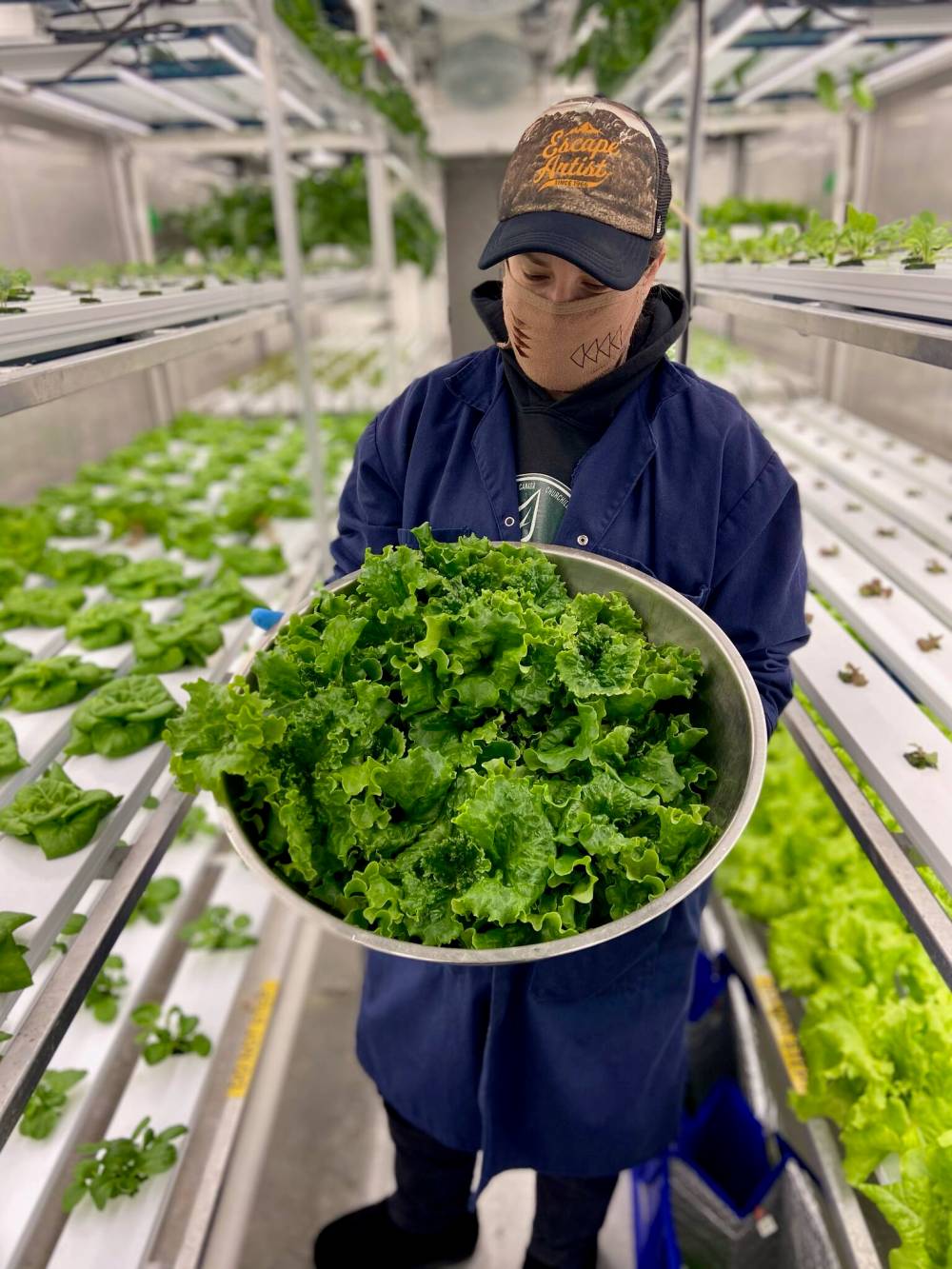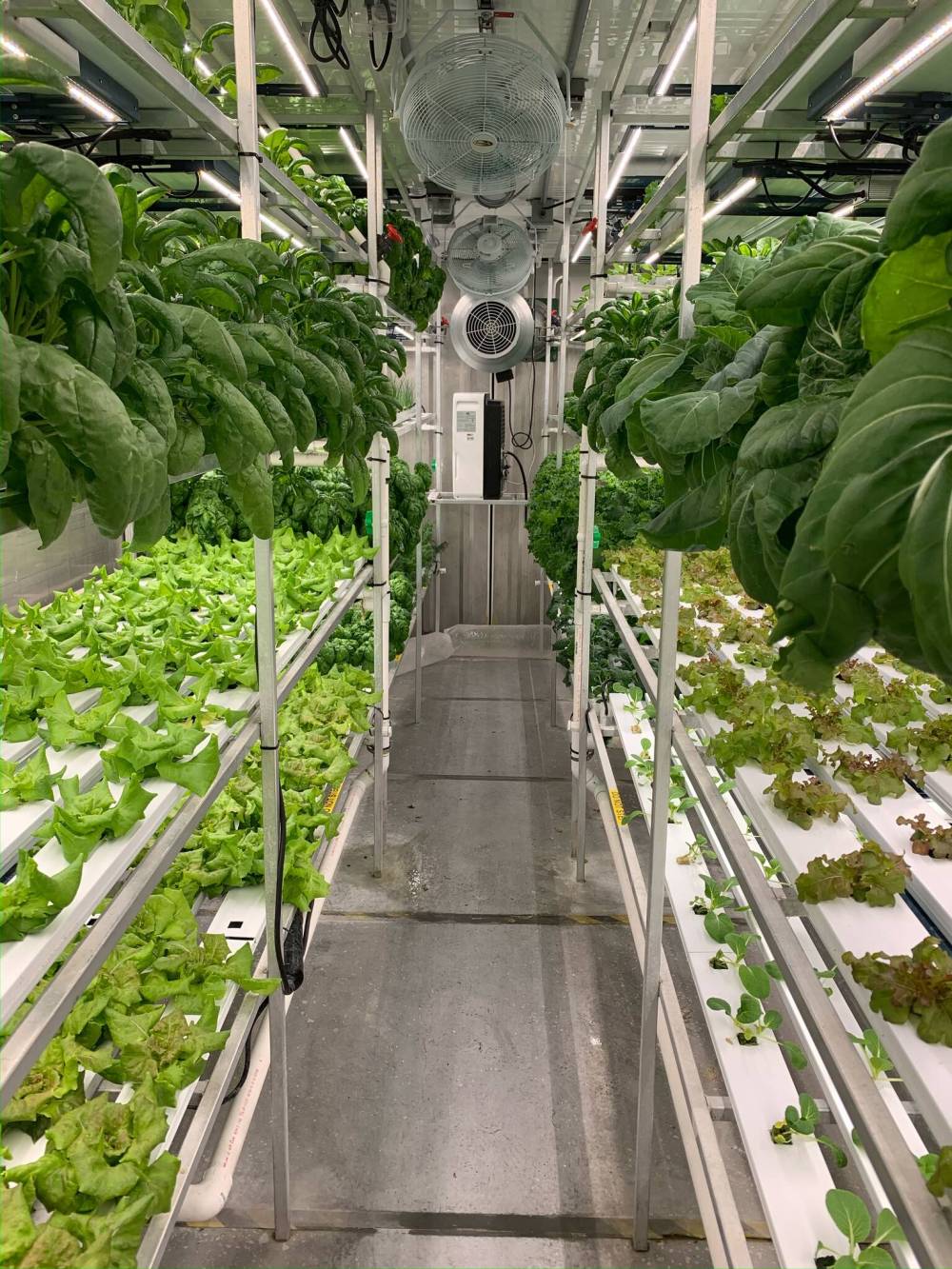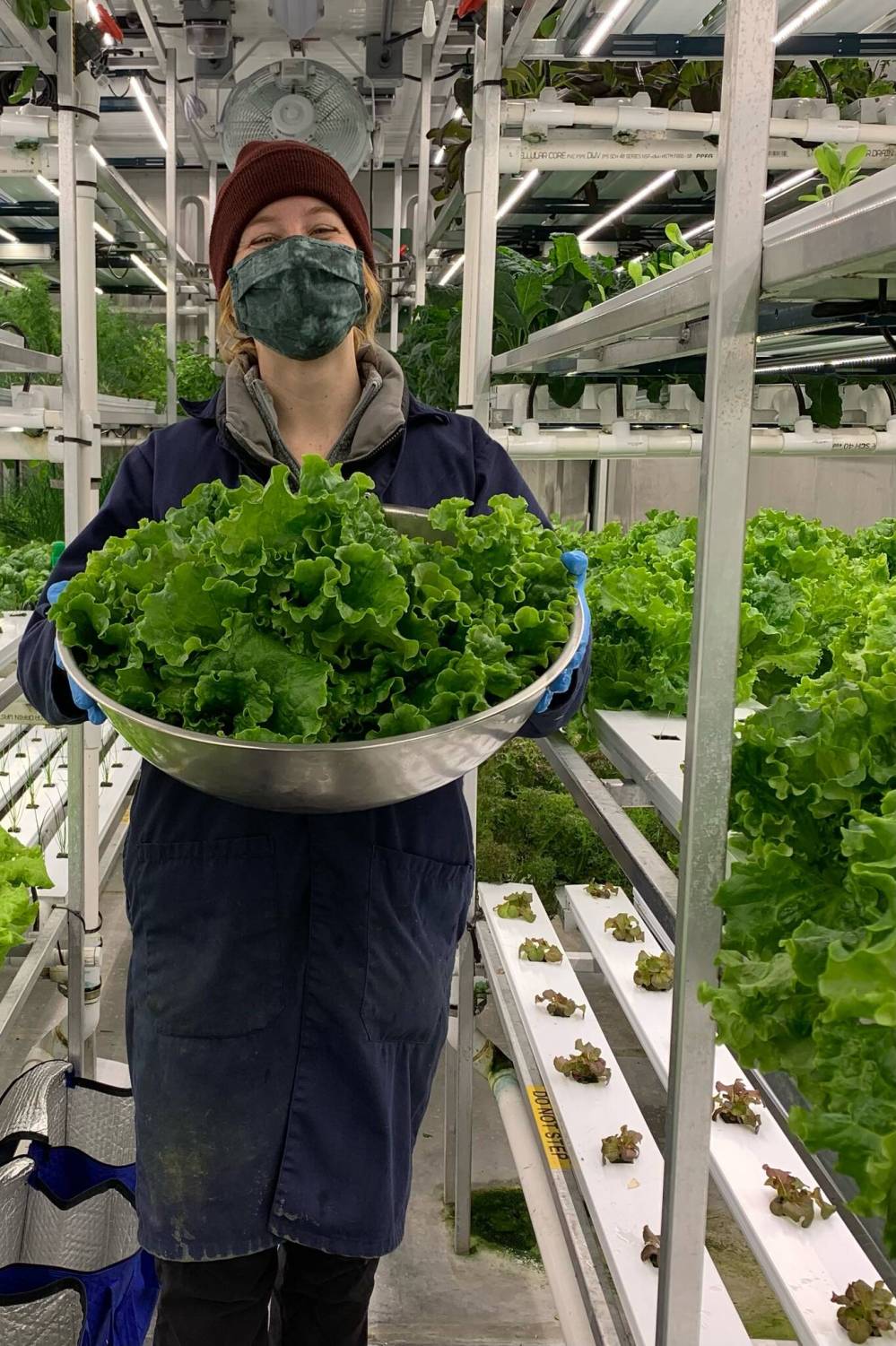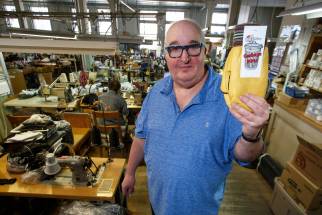Salad Days in Churchill Rocket Greens is now delivering its locally grown produce to residents on the shore of Hudson Bay
Read this article for free:
or
Already have an account? Log in here »
To continue reading, please subscribe:
Monthly Digital Subscription
$0 for the first 4 weeks*
- Enjoy unlimited reading on winnipegfreepress.com
- Read the E-Edition, our digital replica newspaper
- Access News Break, our award-winning app
- Play interactive puzzles
*No charge for 4 weeks then price increases to the regular rate of $19.00 plus GST every four weeks. Offer available to new and qualified returning subscribers only. Cancel any time.
Monthly Digital Subscription
$4.75/week*
- Enjoy unlimited reading on winnipegfreepress.com
- Read the E-Edition, our digital replica newspaper
- Access News Break, our award-winning app
- Play interactive puzzles
*Billed as $19 plus GST every four weeks. Cancel any time.
To continue reading, please subscribe:
Add Free Press access to your Brandon Sun subscription for only an additional
$1 for the first 4 weeks*
*Your next subscription payment will increase by $1.00 and you will be charged $16.99 plus GST for four weeks. After four weeks, your payment will increase to $23.99 plus GST every four weeks.
Read unlimited articles for free today:
or
Already have an account? Log in here »
Hey there, time traveller!
This article was published 28/02/2022 (1378 days ago), so information in it may no longer be current.
Salad days have arrived for many Churchill residents now that Rocket Greens is doing home delivery of its locally grown produce.
It’s quite the change from the expensive and often wilting greens residents here were used to after their lengthy trip on rail or the pricey fare that’s sometimes flown in to the small community on the shores of Hudson Bay.
The hydroponic vegetable operation, called Rocket Greens, is operated by the Churchill Northern Studies Centre (CNSC) and its latest $20,000 grant from Churchill Region Economic Development (CRED) fund helped the group acquire its own van to make weekly deliveries of its produce.

Dylan McCart, the executive director of the CNSC, said the non-profit’s research organization is just about breaking even from the operation.
“We definitely don’t make huge revenues from the operation,” he said.
The selection of produce that is now available year round provides an option to the extremely expensive cost of shipping produce — that is often wilting and quickly rotting — like lettuce, arugula, kale and herbs that Rocket Greens grows.
Lettuce can cost as much $7.50 in Churchill. Since 2017 Rocket Greens has grown more than 60,000 pieces and now has about 50 weekly subscribers for its $10 or $20 box of that week’s produce that included five-to-10 items. It also distributes to grocery stores and restaurants and to the CNSC own cafeteria operation
Like any new technology – and Churchill’s was the first installation of the the turnkey shipping container unit, called Growcer, developed by a company out of Ottawa — it took some time to work out the kinks.
The grow op in Churchill received one of the last bits of funding from the $7 million CRED fund that was established just prior to the rail outage in the spring of 2017. The CRED fund also helped with a $200,000 grant to fund the original acquisition.
Carly Basler, CNSC’s sustainability coordinator, has become a bit of an advocate for the Growcer and has talked extensively with folks in Norway House who also acquired a unit (which also received funding from the CRED.)

Basler said, “The communications I have done with other communities started organically. Sharing our successes and challenges is an important part of operating the first Growcer in Canada. It felt important to talk openly about how it really is.”
Jason Denbow, the executive director of Community Futures, the organization that runs the CRED, said Basler blazed the trail in terms of making the thing work in the frigid temperatures of Northern Manitoba winters.
“She was initially told it could be transported up and plunked down and it would work,” Denbow said. “But nothing is that simple especially in the climate of Churchill.”
It did work but McCart said it was mostly thanks to Basler
Basler said that while Rocket Greens struggles to break even, it has not raised its prices in four years to ensure that it remains affordable for the community
Unlike the sophisticated food delivery operations that have proliferated in the cities during the pandemic, Basler said starting the subscription service was not really that hard.

“Churchill’s pretty small,” she said. “Everyone literally knows everyone else.”
As small as Churchill is, the CNSC is 23 kilometres outside of town and while the centre does have its own fleet of vehicles they were proving to be unreliable to get the produce into town.
“We are a non-profit and we have had our own difficulties over the last couple of years and the centre itself is running a deficit,” McCart said. “Our vehicles are all used and not very gently used.”
The new van is equipped to handle the produce and prevent it from freezing on the trip into town.
The fact that the project addresses the well-known food security issues, made it attractive to the CRED when it began in late 2016.
Denbow said when the rail line went out of service in May 2017 — and stayed out of service for 18 months — the fund had to pivot in its mandate.
“We shifted from long term economic development to how to get short term support in place to keep businesses up and running so the there was something there to conduct economic development when the rail was back,” Denbow said.

He said Rocket Greens was a great example of the kind of project they were looking for initially. In fact the CRED also funded another version of an indoor vegetable growing operation that Opaskwayak Cree Nation deployed before Rocket Greens. OCN uses a technology from South Korea.
Although the CRED is now fully expended, Denbow said Community Futures – whose main function is to provide loans for business people in its various regions – still has plenty of means to support businesses in the North through its office in Thompson
martin.cash@freepress.mb.cs

Martin Cash has been writing a column and business news at the Free Press since 1989. Over those years he’s written through a number of business cycles and the rise and fall (and rise) in fortunes of many local businesses.
Our newsroom depends on a growing audience of readers to power our journalism. If you are not a paid reader, please consider becoming a subscriber.
Our newsroom depends on its audience of readers to power our journalism. Thank you for your support.









